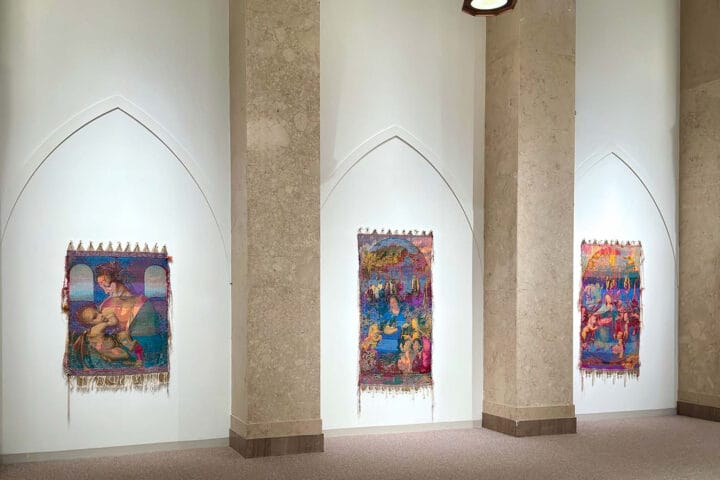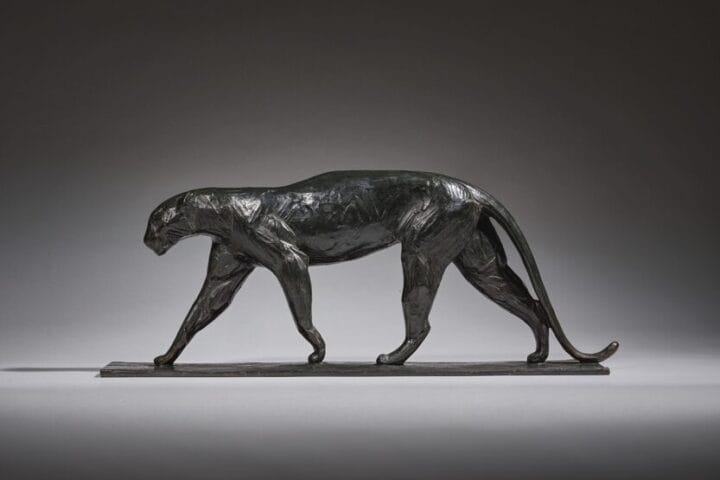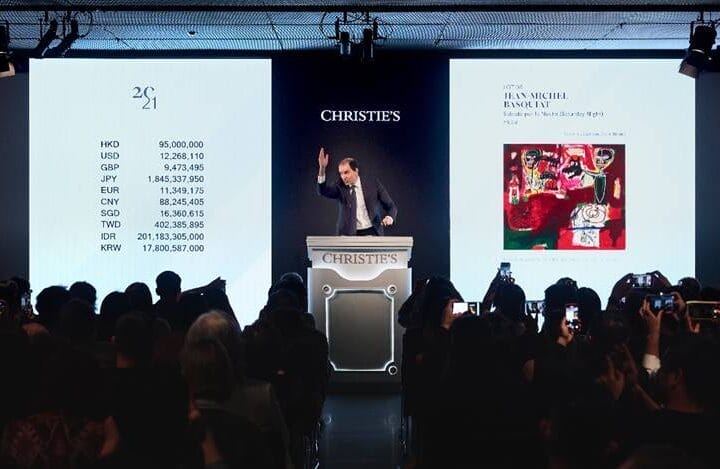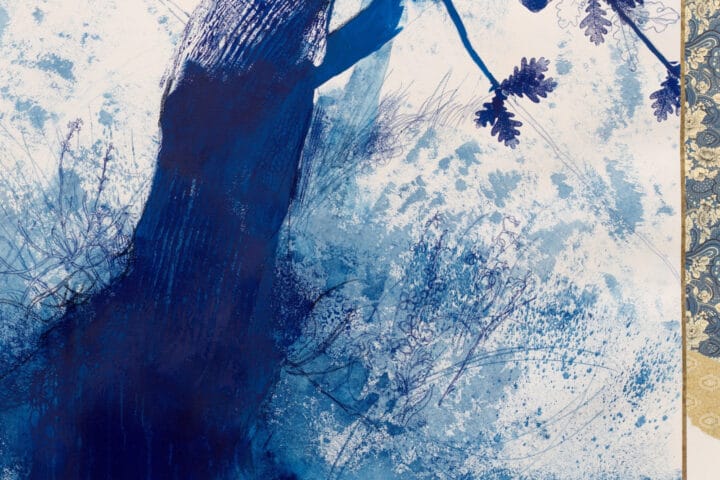WASHINGTON, DC—The Phillips Collection presents an unprecedented reinstallation of its renowned Rothko Room, providing guests the rare opportunity to experience new works in the space. For the first time in over 20 years, three of the four original Mark Rothko paintings installed in the Rothko Room will be on loan, traveling to the Fondation Louis Vuitton in Paris. In their place, the Phillips will showcase three other Rothko paintings on special loan from the collections of Kate Rothko Prizel and Christopher Rothko, the artist’s children. The temporary reinstallation of the Rothko Room will be on view from Wednesday, October 18, 2023, through Sunday, March 31, 2024.
Three classic abstract paintings by Rothko from the 1950s, Untitled (Yellow, Pink, Yellow on Light Pink) (1955), No. 14 (1951), and No. 12 (1951), will temporarily take the place of three paintings acquired by museum founder Duncan Phillips: Orange and Red on Red (1957), Green and Tangerine on Red (1956), and Ochre and Red on Red (1954). Concurrently, the Phillips Rothko paintings will travel to the Fondation Louis Vuitton in Paris for its major Mark Rothko retrospective from October 18, 2023, through April 2, 2024, where they will be exhibited by the Fondation in a separate room that emulates the chapel-like quality of the Phillips Rothko Room.
“The Rothko Room at The Phillips Collection is special not only because of how it represents the vision and aesthetic of Mark Rothko, but also because of its chapel-like setting. It is an immersive space where guests can simply be, in the transcendental sense, with Rothko’s art,” says Vradenburg Director and CEO Jonathan P. Binstock. “The room embodies the spirit of intimacy for which the Phillips is known. We are honored to have these works featured in the retrospective and are immensely appreciative of Kate and Christopher’s generosity so guests may experience a new incarnation of the Rothko Room.”
The Phillips’s Rothko Room was created in 1960 when Duncan Phillips dedicated a space in his newly expanded museum for three of his Rothko paintings, to which the fourth canvas was added in 1964. The ensemble was intended as a meditative space and was referred to by Phillips as a “chapel,” for quiet contemplation. Phillips and Rothko worked together on the scale, proportions, and lighting of the room to intensify the spiritual and emotional impact of the paintings. In 1961, during the inauguration of President John F. Kennedy, Rothko visited the museum and worked with Phillips to adjust some of the details, suggesting the lighting be lowered and that there should be a simple wooden bench rather than chairs in the room. The two maintained a close relationship throughout the development of the presentation of the paintings at the museum and well after. It became the first “Rothko Room” in a public institution and is the only installation designed in collaboration with the artist.
“This is an exciting moment for visitors to experience a new combination of works come to life on the walls of the Rothko Room,” says Phillips Chief Curator Elsa Smithgall. “As we look back on its creation more than half a century ago, the time is ripe to reinvigorate the beloved Rothko Room while reflecting on Rothko’s lasting influence on the history of modern and contemporary art.”
Phillips, who regarded Rothko as one of the greatest contemporary American artists of his time, saw in his paintings “an enveloping magic which conveys to receptive observers a sense of being in the midst of greatness,” (cited by Marjorie Phillips, Duncan Phillips and His Collection, 1982). In looking at Rothko’s paintings, Phillips wrote in 1964, “What we recall are not memories but old emotions disturbed or resolved—some sense of well-being suddenly shadowed by a cloud…,” Phillips’s belief in the life-enhancing impact of art is reflected in his vision for the museum, and by extension, for the Rothko Room. While The Phillips Collection has since grown its Rothko holdings, the Rothko Room has remained virtually unchanged in scale and character and was instrumental in shaping the artist’s future commissions.









